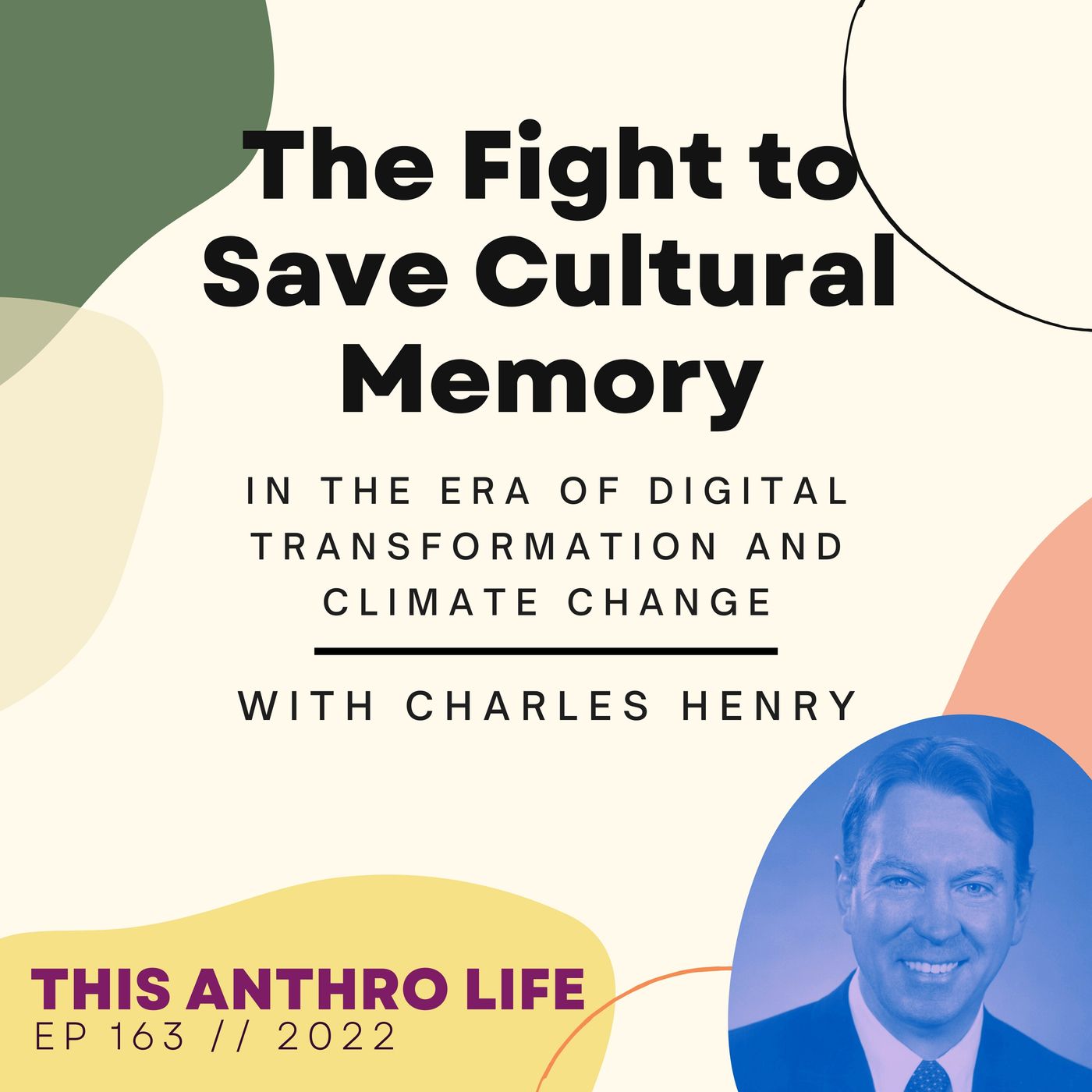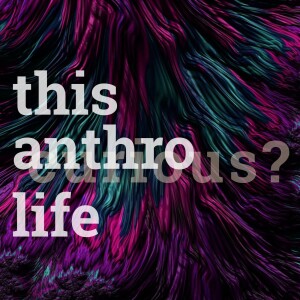
The Fight to Save Cultural Memory with Charles Henry
 2022-05-11
2022-05-11
Download
Right click and do "save link as"
Interdependence is the idea that the wellbeing of our world and for our physical and emotional selves depends on those around us, yet when we find ourselves up against a challenge bigger than ourselves, our sense of interdependence becomes stronger.
When we move that scale even larger (i.e. a global climate crisis), interdependence becomes paramount. Climate change not only affects our everyday lives, but affects cultural history and cultural artifacts such as books and architectural styles, as well as more ephemeral practices like theater, song and language.
How well we are able to face these challenges has to do with how we tell stories. How well we tell stories depends on what we choose to protect, preserve, and make prosper in our cultures. If you’ve used the Internet in the last 20 years, or 20 minutes, you know that there isn’t a lack of information or stories online, but how much of our and others’ cultural heritage exists digitally, how accessible is it, and who is able to contribute?
These are questions that Charles Henry engages with in this episode. Charles is the president of the Council on Library and Information Resources (CLIR), a nonprofit that works with libraries, cultural institutions, and higher learning communities to improve research, teaching, and learning environments.
Check out the Council on Library and Information Resources: https://www.clir.org/about-us/history/
Digital Library of the Middle East, one of the world’s largest online archives of Middle Eastern and North African artifacts. https://www.clir.org/2020/07/clir-and-stanford-libraries-announce-digital-library-of-the-middle-east-platform/
The HBCU Library Alliance Partnership, which is a long-term partnership to foster awareness of and access to collections held by Historically Black Colleges and Universities. https://www.clir.org/initiatives-partnerships/hbcu-library-alliance/
view more
When we move that scale even larger (i.e. a global climate crisis), interdependence becomes paramount. Climate change not only affects our everyday lives, but affects cultural history and cultural artifacts such as books and architectural styles, as well as more ephemeral practices like theater, song and language.
How well we are able to face these challenges has to do with how we tell stories. How well we tell stories depends on what we choose to protect, preserve, and make prosper in our cultures. If you’ve used the Internet in the last 20 years, or 20 minutes, you know that there isn’t a lack of information or stories online, but how much of our and others’ cultural heritage exists digitally, how accessible is it, and who is able to contribute?
These are questions that Charles Henry engages with in this episode. Charles is the president of the Council on Library and Information Resources (CLIR), a nonprofit that works with libraries, cultural institutions, and higher learning communities to improve research, teaching, and learning environments.
Check out the Council on Library and Information Resources: https://www.clir.org/about-us/history/
Digital Library of the Middle East, one of the world’s largest online archives of Middle Eastern and North African artifacts. https://www.clir.org/2020/07/clir-and-stanford-libraries-announce-digital-library-of-the-middle-east-platform/
The HBCU Library Alliance Partnership, which is a long-term partnership to foster awareness of and access to collections held by Historically Black Colleges and Universities. https://www.clir.org/initiatives-partnerships/hbcu-library-alliance/
More Episodes
The Happiness Fetish Revisited
 2017-07-24
2017-07-24
 2017-07-24
2017-07-24
The Stories Bones Tell w/ Kristina Killgrove
 2017-06-28
2017-06-28
 2017-06-28
2017-06-28
Visual Anthropology Revisited, pt 2
 2017-06-02
2017-06-02
 2017-06-02
2017-06-02
Visual Anthropology Revisited, pt 1
 2017-05-31
2017-05-31
 2017-05-31
2017-05-31
On the Craft of Writing w/ Dr. Anita Hannig
 2017-05-17
2017-05-17
 2017-05-17
2017-05-17
Free Think 6 – Who Are the 13,000?
 2017-05-12
2017-05-12
 2017-05-12
2017-05-12
The Power of Vulnerability Revisited
 2017-03-22
2017-03-22
 2017-03-22
2017-03-22
Waiting w/ Serra Hakyemez
 2017-02-08
2017-02-08
 2017-02-08
2017-02-08
012345678910111213141516171819
Create your
podcast in
minutes
- Full-featured podcast site
- Unlimited storage and bandwidth
- Comprehensive podcast stats
- Distribute to Apple Podcasts, Spotify, and more
- Make money with your podcast
It is Free
- Privacy Policy
- Cookie Policy
- Terms of Use
- Consent Preferences
- Copyright © 2015-2024 Podbean.com





